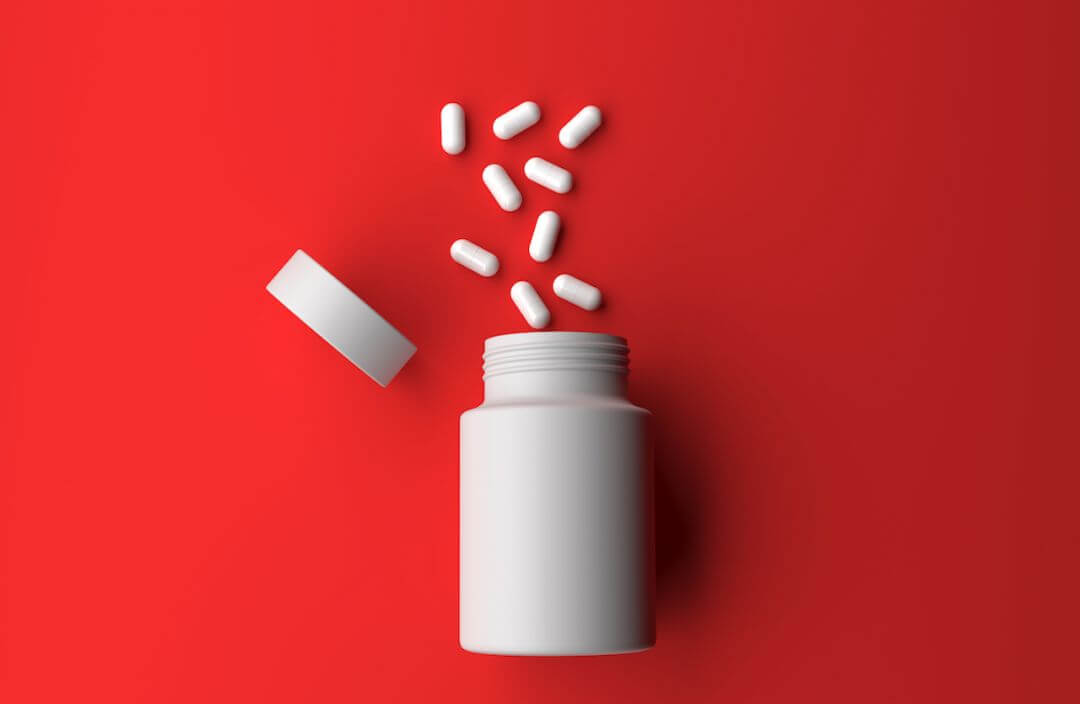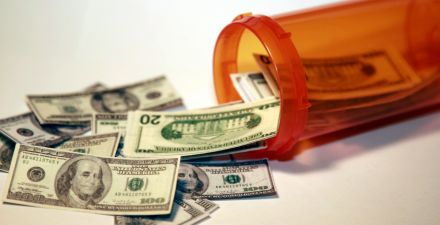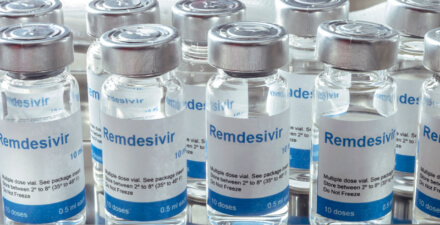The CREATES Act shows legislation can stop anticompetitive pharmaceutical industry practices

In December 2019, Congress passed the Creating and Restoring Equal Access to Equivalent Samples, or CREATES, Act, bipartisan legislation to stop anticompetitive strategies that delay competition in pharmaceutical markets and increase prescription drug costs. The act incorporates polices advocated by the Washington Center for Equitable Growth.
The CREATES Act strengthens the 1984 Hatch-Waxman Act, which itself has saved American consumers and the U.S. healthcare system trillions of dollars (more than $1 trillion between 1999 and 2010 alone) by establishing a process for generic drug producers to bring their products to the marketplace. Even more money could have been saved, but some brand-name drug manufacturers, which enjoy monopoly or near-monopoly profits, have found ways of extending those profits by slowing or preventing competition from generic drugs.
The CREATES Act addresses two of these dubious pharmaceutical company practices—which are estimated to have increased prescription drug costs by hundreds of millions to billions of dollars a year—with the goal of strengthening market competition and helping make more generic drugs accessible, thus reducing healthcare costs and saving lives. It does so through relatively minor and cost-free changes. Both a recent report from the Food and Drug Administration and anecdotal evidence from the generic industry, which are discussed below, provide strong evidence that the CREATES Act is working.
Overview of the problem the CREATES Act addresses
Under the Hatch-Waxman Act, generic companies do not need to prove their product is safe and effective. That would be costly, duplicative (because the brand-name company has already done that testing), and unethical (because such proof requires giving some patients placebos, which is unethical when the drug has already been proven effective).
Instead, the generic manufacturer must show its product is a bioequivalent, or the same in all relevant respects, to the branded product. Although bioequivalency testing is much less expensive, it requires that the generic company test its product against the branded product.
Moreover, some drugs that pose a health threat if used incorrectly require a safety protocol to ensure that they are used properly. These requirements, like most FDA requirements, exist to ensure that products are safe and effective, not to delay competition or provide branded companies with windfall monopoly profits. Nevertheless, if a branded company can find a way to prevent the bioequivalence test or prevent FDA approval of a safety protocol for the generic product, there is no competition, and the branded company protects its monopoly profits.
Congress adopts historic prescription drug pricing reform
December 23, 2019
Improving competition to lower U.S. prescription drug costs
February 18, 2020
The problem Congress sought to address in 2019 was simple: Prevent the branded companies from unfairly using two legal requirements to delay or prevent generic competition. Let’s consider each of these anticompetitive practices, so-called sample blockades and safety protocol filibusters, in turn.
Sample blockades
As may be obvious, a generic company cannot prove bioequivalence if it cannot obtain samples of the branded drug with which it plans to compete. Before the CREATES Act, some companies used a variety of tactics to ensure that generic companies could not obtain those samples. By time the CREATES Act was enacted, there were 55 generic products for which companies could not obtain the needed branded samples, according to the Food and Drug Administration.
The CREATES Act established a process that requires brand-name companies to provide generic companies with needed samples if the product is not generally available. It is designed to eliminate brand companies’ incentive to even try to deny the generic companies the samples they need. The process the act created is quick, the requirements are straightforward, and the bill imposes substantial penalties if a branded company acts in bad faith.
At the same time, the law ensures that the generic companies receive what they need but no more. This was a concern of brand-name companies, alongside worries that generic companies’ testing procedures have FDA approval.
While there are no detailed studies to confirm how this provision of the CREATES Act is working, I have talked to many representatives in the generic drug industry, who report that the longstanding problem of sample blockades has entirely or almost entirely disappeared. Interestingly, the formal process has been invoked few times, if at all; its mere existence as a threat has altered corporate behavior.
Safety protocol filibuster
The second tactic addressed by the CREATES Act is a little more complicated but just as effective. For drugs subject to safety protocols to ensure their safe use by consumers, originally a generic had to negotiate with the branded company to develop a shared protocol before the generic could receive FDA approval.
But the branded company had a very big advantage. It already had its protocol accepted and its product on the market while the two companies negotiated a new shared protocol system. The process effectively gave patent-holding companies veto power over generic companies’ protocols, and thus the ability to filibuster negotiations endlessly without repercussion.
And they did. Brand-name manufacturers would routinely nitpick, create impossible conditions, and “slow walk” the process, to the point where agreements were rare. It would take years of fruitless negotiating before a generic company could seek FDA permission to develop a different but equally safe protocol. Generic companies, for example, spent 3 unsuccessful years trying to negotiate a shared protocol system with Jazz Pharmaceuticals PLC for Xyrem, a then-billion-dollar treatment for narcolepsy, before the Food and Drug Administration was willing to approve separate protocols. Until the CREATES Act, only in one case was a generic able to successfully negotiate a shared system prior to receiving FDA approval.
The CREATES Act has essentially eliminated this problem by flipping the presumption. Instead of requiring the generic drug company to try to reach an agreement with a branded competitor that has every reason to delay negotiations, generic companies can now propose their own safety protocols to the Food and Drug Administration from the start, although they are free to develop a joint one with a branded company as well.
The provision’s effect has been immediate. Now that the negotiation process cannot delay competition, branded manufacturers are far more willing to reach shared protocols with generic competitors. According to the FDA’s Office of Generic Drugs’ 2020 annual report, within a year of the CREATES Act becoming law, the agency had approved shared protocols for two products, a stand-alone generic protocol for a third product, and a modification of protocols that enabled another pair of branded and generic companies with separate protocols to share the same protocol going forward.
Conclusion
The early success of the CREATES Act shows that strong congressional action can change industry behavior, and sometimes even small legislative changes can make a significant difference. The CREATES Act had many legislative co-sponsors: Sens. Patrick Leahy (D-VT), Chuck Grassley (R-IA), Amy Klobuchar (D-MN), and Mike Lee (R-UT), alongside Reps. David N. Cicilline (D-RI), Jim Sensenbrenner (R-WI), Jerry Nadler (D-NY), Doug Collins (R-GA), Peter Welch (D-VT), and David McKinley (R-WV).
They should be proud of this legacy, but there is still much work to be done to eliminate the legal loopholes that allow the pharmaceutical industry to sustain high prices and collect excessive profits by preventing competition. Bills are pending in Congress that would address other anticompetitive practices: pay-for-delay patent settlements, in which manufacturers of brand-name drugs pay a competitor to keep generic or biosimilar versions of their drugs out of the market; and citizen petition abuse, in which drug companies use a public comment process to slow down FDA approval of generics.
Like the CREATES Act, these bills are bipartisan and targeted. The question is whether the CREATES Act was the exception or whether it heralds the possibility of continued legislative reform to protect and promote competition in the pharmaceutical industry.







